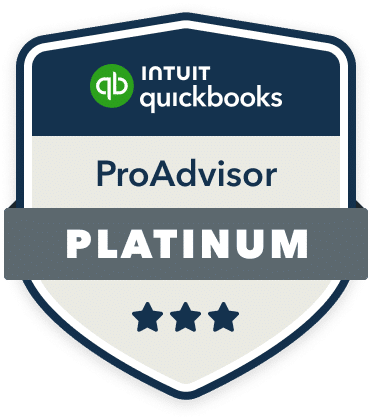Have you ever felt overwhelmed with managing your business cash flow?
You’re not alone.
Cash flow is one of the most common sources of concern for small business owners. Ensuring your business cash flow is under control can give you peace of mind to tackle challenges and meet your business goals.
In this article, we’ll share common challenges with business cash flow, why guesswork isn’t the best approach for cash flow, and how cash flow plans and forecasts help your business thrive.
Common Challenges with Business Cash Flow
Cash flow can make or break a business. It can be tricky for even the most seasoned business owner, often presenting the following challenges:
- Uneven revenue streams from different products and services, causing financial ebbs and flows.
- Seasonal fluctuations impacting businesses such as breweries that experience peaks during warmer months and special events.
- Managing accounts payable and accounts receivable, often balancing delays in payments from clients, distributors, or retailers while managing an increasing list of payables.
- Unforeseen expenses, major costs, and emergencies.
Why Guesswork for Business Cash Flow Isn’t the Right Approach
While managing cash flow can be daunting, relying on guesswork can be a disservice to your business. Consider the following:
- Potential Financial Instability – relying on guesswork can lead to inconsistent cash flow projections. Without accurate forecasts, businesses may struggle to cover costs and put sufficient funding into their savings.
- Ineffective Resource Allocation – when resources aren’t allocated effectively, there is a risk of underinvestment in potential strategic growth areas.
- Supplier and Creditor Relations – if payments to suppliers and creditors are delayed due to cash flow, relationships may be strained. Maintaining trust with business partners is crucial, and can impact the availability of supplies and your credit terms.
- Limited Contingency Planning – without a clear understanding of cash flow, businesses may be ill-prepared for dealing with unexpected events or emergencies.
Crafting a Business Cash Flow Management Plan
Crafting a robust business cash flow management plan can help businesses mitigate risk and prepare for opportunities. Ensure your cash flow management plan includes the following:
- Invoice and Payment Policies
- Inventory Management
- Expense Monitoring and Control
- Credit Management
- Emergency Fund and Contingency Planning
- Regular Review and Adjustment
An important tool for any cash flow management plan is creating a robust cash flow forecast.
Leveraging Business Cash Flow Forecasts
Business cash flow forecasts are financial planning tools that project the expected cash inflows and outflows of a business over a specific period, typically weeks, months, or even years. These forecasts provide a forward-looking perspective on the company’s financial health, helping to anticipate potential cash shortages, surpluses, and overall liquidity trends.
There are many benefits that come from leveraging business cash flow forecasts:
- Early Identification of Cash Shortfalls: By projecting future cash flows, businesses can anticipate periods where expenses may exceed incoming cash, enabling proactive measures to secure additional funding or adjust spending plans.
- Strategic Decision-Making: Businesses can make informed decisions about investments, expansions, and resource allocations based on anticipated cash flow trends.
- Optimizing Working Capital: By projecting when cash will be needed and when it will be received, businesses can fine-tune inventory levels, manage receivables and payables efficiently, and ensure that working capital is utilized effectively.
- Credit Management: Businesses can use forecasts to negotiate favorable credit terms with suppliers and manage customer credit to avoid late payments, contributing to overall cash flow stability.
- Facilitating Budgeting and Planning: Businesses can align their operational and financial goals with projected cash flows, ensuring that budgets are realistic, achievable, and in line with the organization’s strategic objectives.
- Risk Mitigation: Identifying potential cash flow gaps in advance allows businesses to develop contingency plans, creating a buffer against unforeseen challenges and enhancing overall financial resilience.
- Investor and Creditor Confidence: Transparent and reliable cash flow projections demonstrate a business’s commitment to sound financial management, fostering trust and positive relationships with external stakeholders.
- Operational Efficiency: By having a clear understanding of future cash needs, businesses can streamline operations, prioritize expenditures, and ensure that resources are allocated optimally.
- Performance Measurement: Businesses can compare actual cash flow against forecasted figures, enabling them to assess their financial performance, identify variances, and make necessary adjustments.
- Cash Flow Planning for Growth: Businesses can use forecasts to assess the financial feasibility of expansion plans, ensuring that the necessary cash is available to support growth initiatives.
Place Emphasis on Your Business Cash Flow
Cash flow management helps businesses with financial stability, strategic decision-making, and optimal resource allocation. At ZenStrategies, we recognize the critical role cash flow plays in your business.
Our friendly team can assist you in building comprehensive cash flow management plans, creating and leveraging accurate cash flow forecasts, and implementing strategies to address specific challenges in your industry.
By working with ZenStrategies, you gain access to expertise that aligns with your financial goals. Don’t leave your cash flow to chance—schedule your meeting with us today!




